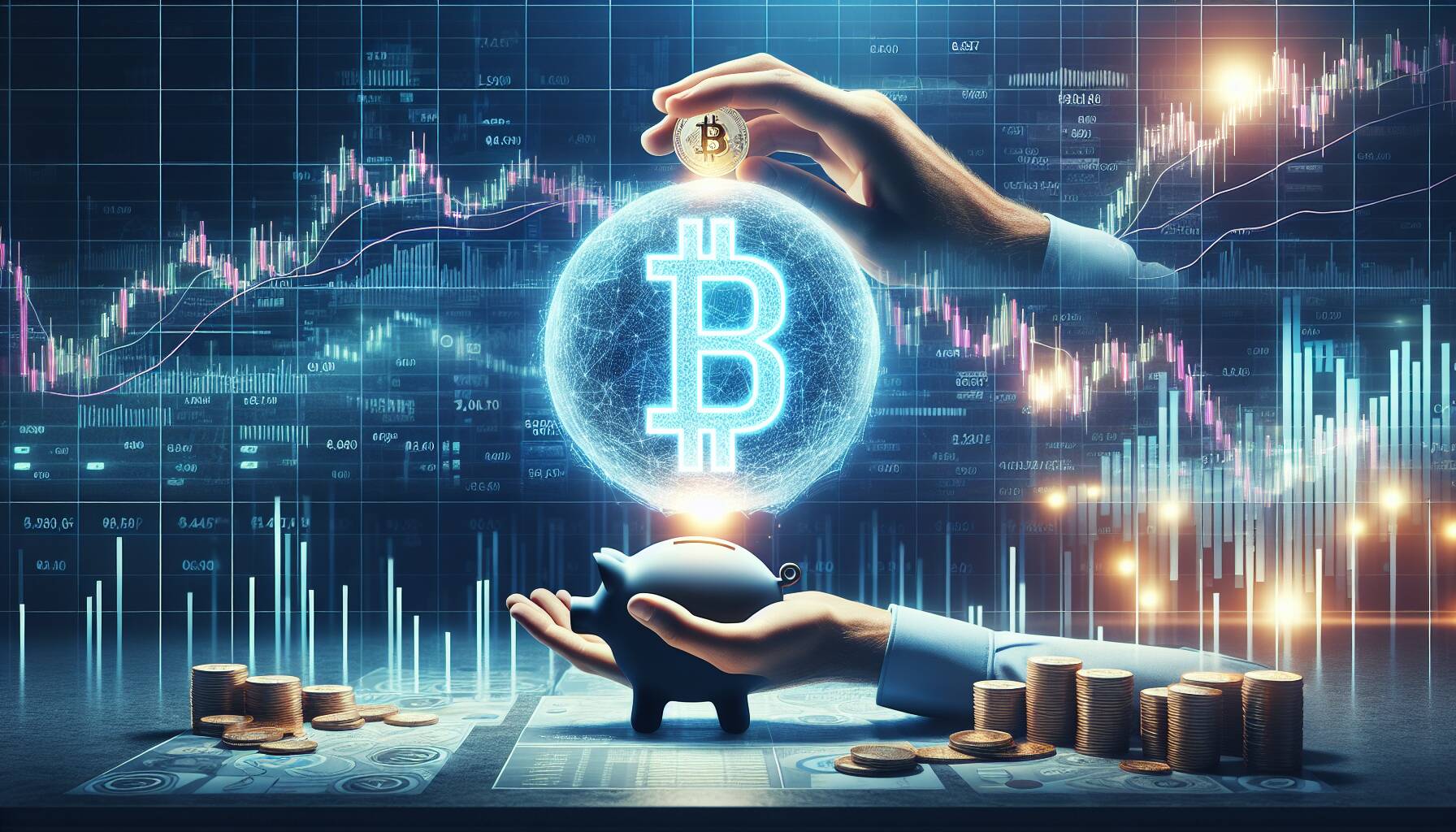In a bold move highlighting the growing trend of digital asset adoption, Bank of New York Mellon (BNY) and Goldman Sachs (GS) are launching tokenized money market funds aimed at institutional investors. BNY, a longstanding leader in the custodial banking sector with a staggering $53 trillion in assets under management, recently unveiled its plans to provide these innovative financial instruments through its LiquidityDirect platform. This initiative signifies a clear shift towards the integration of blockchain technology in traditional finance, making investment processes more efficient.
Goldman Sachs steps in as a key player by utilizing its Digital Asset Platform, where ownership records and transactions for these tokenized funds will be meticulously documented on a secure blockchain. Notable institutions, including BlackRock and Fidelity, have already signed up to take advantage of this new offering, demonstrating significant confidence in the model’s potential. BNY will serve as both the shareholder servicer and custodian of these funds, along with assuming the role of tokenization manager, which involves managing the minting and burning of tokens that correspond to actual fund shares.
“The step of tokenizing is important, because today that will enable seamless and efficient transactions, without the frictions that happen in traditional markets,” remarked Laide Majiyagbe, BNY’s global head of liquidity, financing, and collateral.
Tokenized money market funds, which primarily derive their value from U.S. government securities, are leading the charge in bringing established asset classes onto blockchain platforms. The market for tokenized U.S. Treasuries soared to over $7 billion this year, tripling its size in just twelve months, according to data from RWA.xyz. However, despite this rapid growth, it still represents only a small slice of the expansive $7 trillion money market fund sector.

Tokenized Money Market Funds by BNY Mellon and Goldman Sachs
The rollout of tokenized money market funds by Bank of New York Mellon and Goldman Sachs signifies a critical evolution in financial transactions and asset management. Here are the key points:
- Introduction of Tokenized Money Market Funds:
- BNY Mellon is launching tokenized money market fund share classes for institutional investors.
- Goldman Sachs is utilizing its Digital Asset Platform for recording ownership and transactions.
- Institutional Participation:
- Major institutions like BlackRock and Fidelity are already on board, indicating strong market interest.
- Access to these tokens could enhance liquidity and investment options for institutional investors.
- Role of BNY Mellon:
- Acting as shareholder servicer and custodian, BNY Mellon ensures proper management of the tokenized assets.
- BNY also takes on the new role of tokenization manager to oversee the minting and burning of tokens.
- Efficiency and Transactional Benefits:
- Tokenization enables seamless and efficient transactions, reducing traditional market frictions.
- This innovation may lead to faster execution times and lower transaction costs for investors.
- Market Growth:
- The tokenized market for U.S. Treasuries has significantly increased, exceeding $7 billion this year.
- Despite rapid growth, this market still represents a small portion of the overall $7 trillion money market fund market.
“The step of tokenizing is important, because today that will enable seamless and efficient transactions…” – Laide Majiyagbe, BNY’s Global Head of Liquidity, Financing and Collateral
Tokenized Money Market Funds: A New Frontier in Digital Assets
The launch of tokenized money market funds by Bank of New York Mellon (BNY) and Goldman Sachs (GS) marks a significant milestone in the financial sector, particularly as digital asset adoption gains momentum. This innovative approach positions BNY and GS at the forefront of a rapidly evolving market, which continues to redefine asset management. Compared to traditional methods, the introduction of tokenization could minimize transaction frictions, creating a smoother experience for institutional investors.
Competitive Advantages: One of the most notable advantages of this initiative is the speed and efficiency offered by blockchain technology, which enhances operational workflows and liquidity. BNY’s robust reputation as one of the largest custody banks overseeing $53 trillion in assets, paired with Goldman Sachs’ pioneering digital asset capabilities, lends unparalleled trust and credibility to the venture. Enhanced asset security and transparency could also draw in institutional giants like BlackRock and Fidelity, reinforcing a growing network of institutional adoption.
Competitive Disadvantages: However, the path is not without challenges. The tokenized money market fund market, while burgeoning, still represents a mere slice of the vast $7 trillion money market fund market, indicating that widespread acceptance may take time. Additionally, existing regulatory uncertainties surrounding digital assets might pose risks, making potential adopters hesitant in the short term.
This groundbreaking approach could significantly benefit institutions seeking new, efficient ways to manage liquidity and secure investments. However, traditional asset managers reluctant to embrace these changes may find themselves at a competitive disadvantage if they fail to adapt to the evolving landscape. Overall, the tokenization of money market funds has the potential to reshape investment strategies for those ready to pivot into the digital future.
















